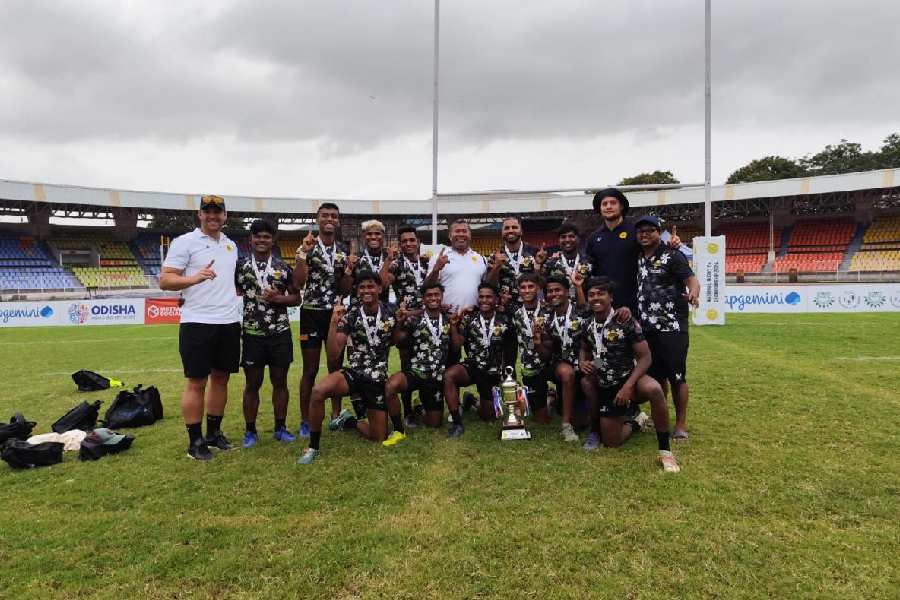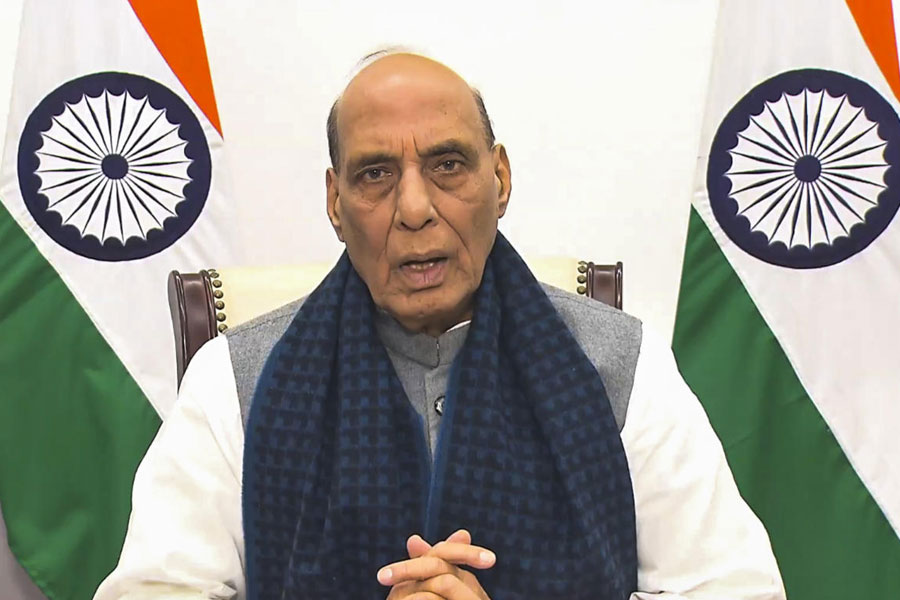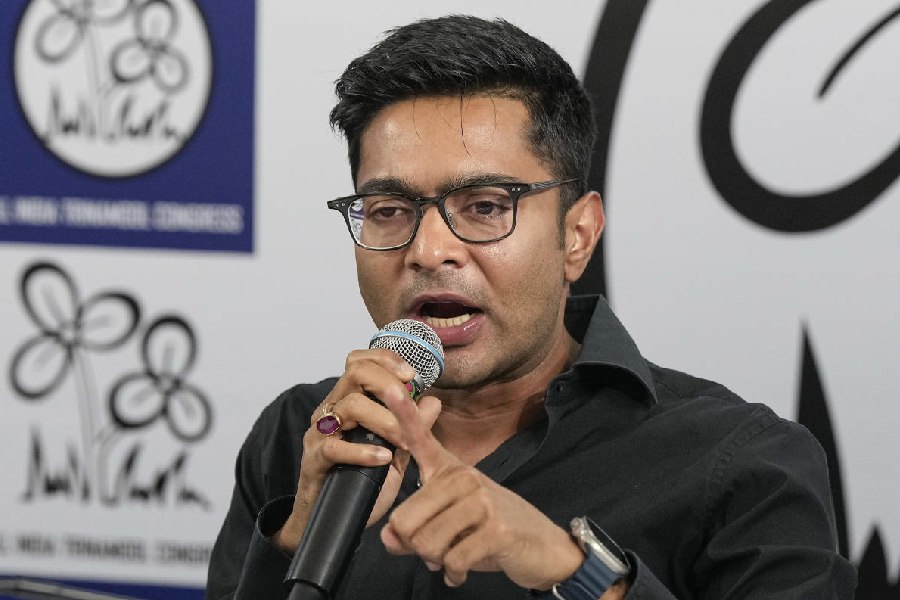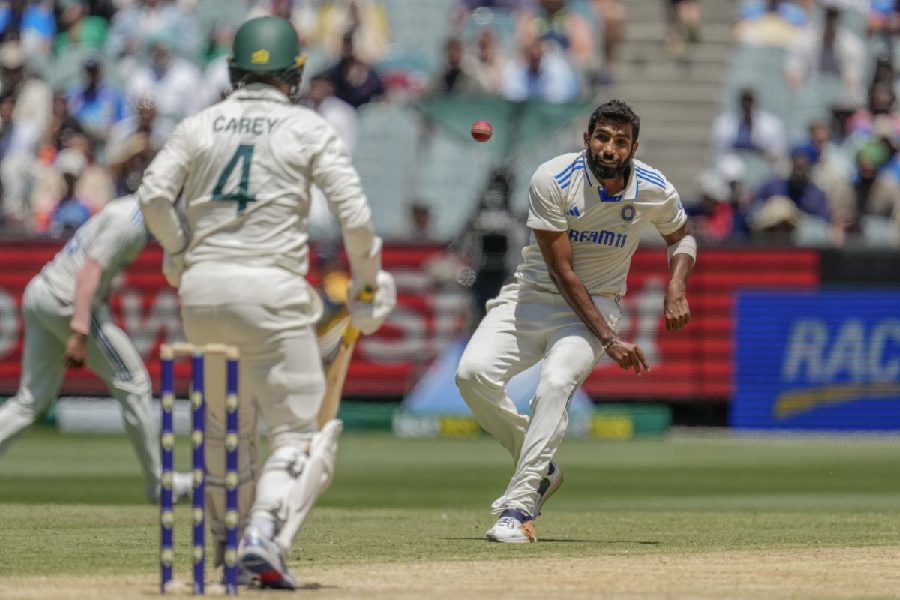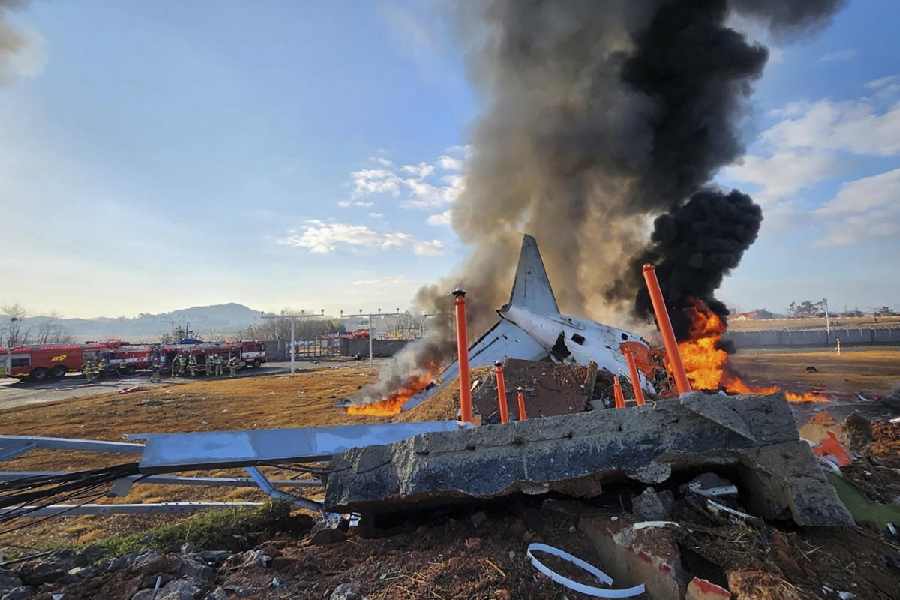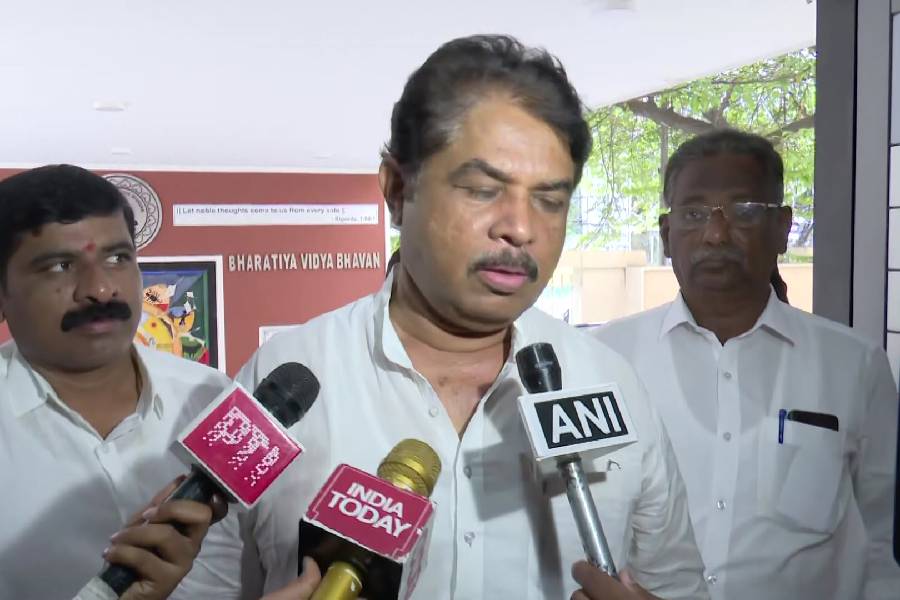The Bengal rugby team finished second in the just-concluded National Rugby Sevens Championship in Pune.
Most members of the team come from marginalised backgrounds. Put the silver against the backdrop of their circumstances and it glitters more than gold.
Arjun Mahato, 19, is a key member of the team. A resident of a colony in Taratala, Mahato lost his father when he was barely three months old. His mother is a sweeper in a local factory.
Like most players in the team, Mahato is a product of Khelo Rugby, a campaign to take the sport and social development opportunities into marginalised communities across the state.
He has been playing rugby for almost a decade now. He is a reliable scrum-half, acting as a link between the forwards and backs.
“My mother has to toil hard to run the family. There are several other challenges. But when I play rugby, my mind is free of every other thought. It is liberating. I want to do well for India,” said Mahato, who debuted for the under-20 national side last year.
The team was led by Akash Balmiki, 28. A fly-half wearing Number 10 on the back of his shirt, he is like the command post for the team, instrumental in launching attacks.
He hails from a colony behind the police quarters in Bhawani Bhawan, the state police headquarters. His father is a sweeper and mother a homemaker. Balmiki is a veteran of the national side, having made his debut in 2013. He has represented the national side in Pakistan, the Philippines and South Africa.
Balmiki travelled to the US at the start of the year for a stint with the Dallas Harlequins Rugby Football Club.
He is a former student of Future Hope, a school for underprivileged children that puts special focus on rugby. “I now train children at Future Hope. I want to be a professional coach in the future and help more youngsters,” said Balmiki, who has a degree in sports management from a private institute.
Bengal lost to Haryana in the final on Sunday. It was a repeat of the previous final. But the margin narrowed from 30-0 to 19-7.
Sanjay Patra, the coach of the Bengal team, rued the lack of government support for rugby in Bengal.
“In states like Odisha, Maharashtra and Haryana, there are many incentives for players. The infrastructure is much better. Rugby is like a mainstream sport in these states. The players get cash rewards and scholarships. Our players need proper nutrition and infrastructural support from a young age. They do not lack skill but need to improve physical stamina,” he said.
The coach and several players pointed out that the Odisha players were flown to the tournament. A physiotherapist flew with them. The Bengal team travelled by train in AC-2 tier. They came back on Tuesday.
Paul Walsh, a former British diplomat who has been instrumental in spotting rugby talents in Bengal, is like a mentor for the Bengal players.
“I see these kids go absolutely single-focused towards their rugby. I think that is great because it takes a lot of distractions out of their lives. They come from difficult circumstances. People smoking, drinking and using drugs around them. Those temptations are there for everybody, but a little more so for these children because of where they come from,” he said.
Sukumar Hembram, 26, embodies that focus. He was found on the streets of Howrah by an NGO that raised him. He came to Walsh’s notice around 10 years ago and hasn’t looked back since.
Lav Jhingan, president of the Bengal Rugby Union, said: “The boys played like a cohesive unit. Two of our key players got carded and missed the final match.”
On the alleged lack of government support, he said: “Some states do give rewards to their teams. When the Bengal women’s team won bronze in the National Games (in Goa in October 2023), they were rewarded by the Bengal Olympic Association, which functions under the state government. Let us see what happens this time.”
The Bengal Olympic Association paid for a part of the travel expenses of the men’s team, he added.

